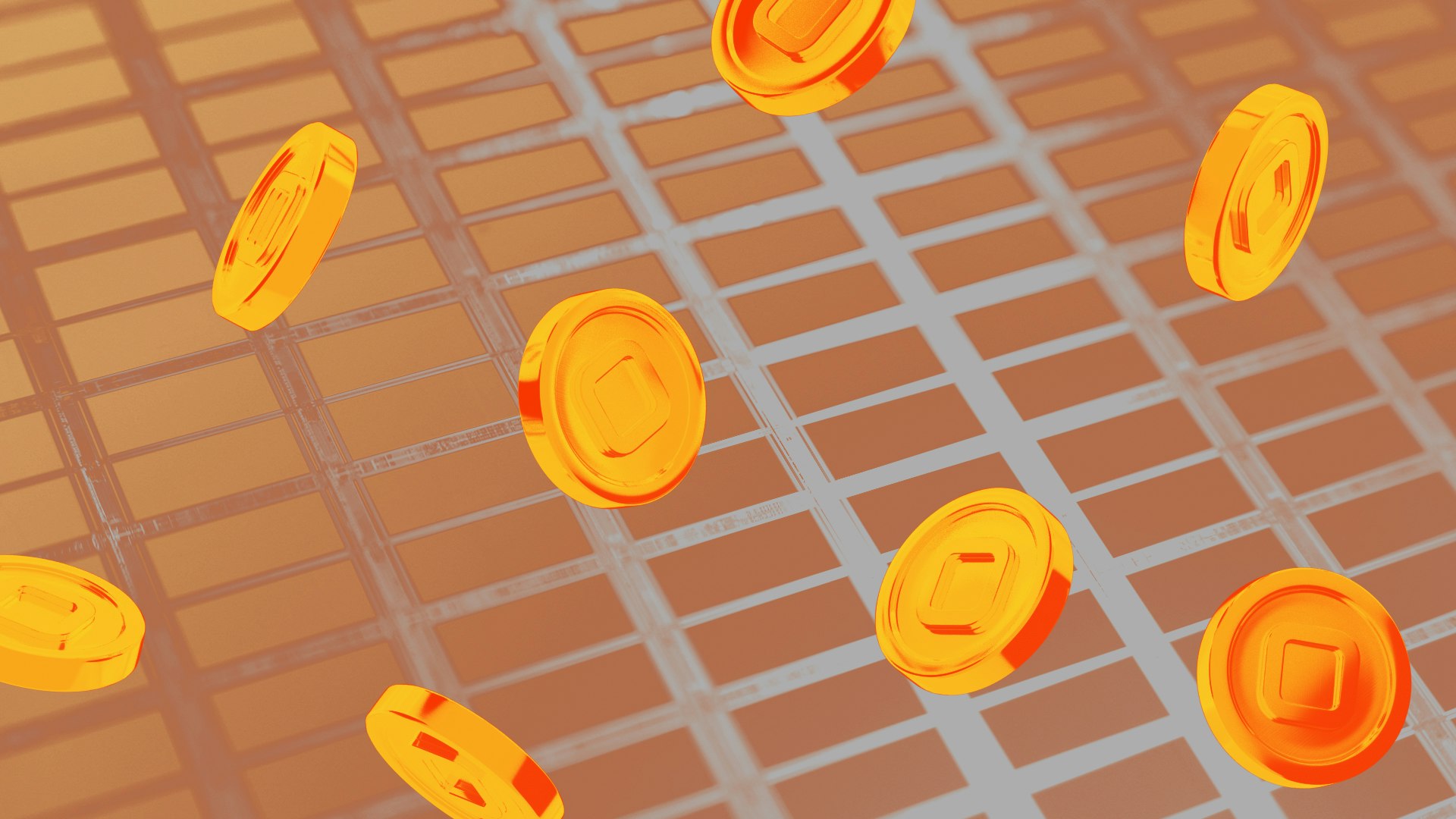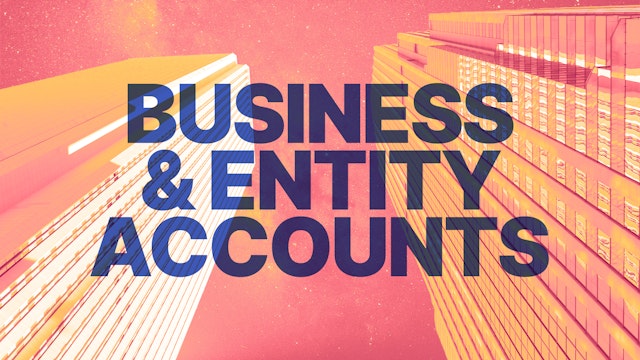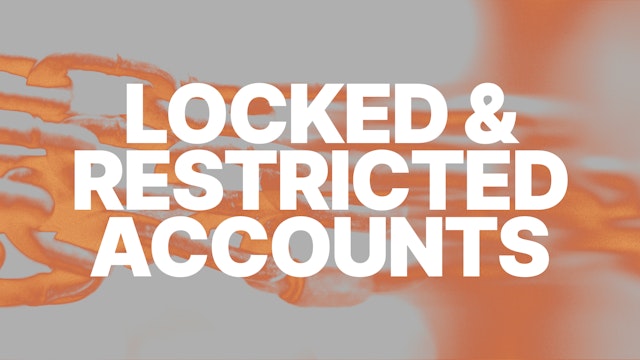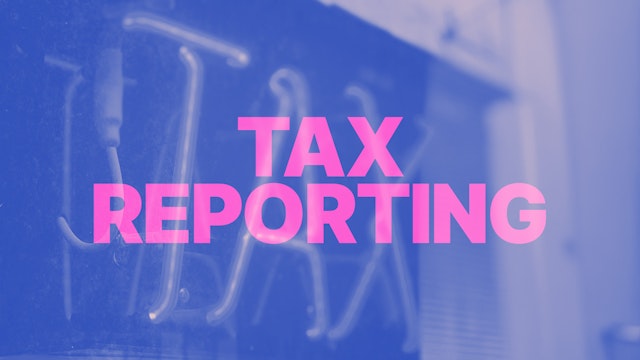Crypto Exchange Liquidity: What is it, and How Does it Affect Trades?
Ever wondered what crypto exchange liquidity means? It's important to know this for trading, so listen up.
In this article...
- Liquidity is important to the functioning of crypto trades
- But what is liquidity?
- Here we explain why liquidity is important to the average crypto exchange

A crypto exchange uses liquidity to keep the wheels turning smoothly for their users. Liquidity ensures you can buy, sell, or swap assets quickly and at competitive prices. But what exactly is liquidity, and why should it matter to you as someone who wants to use a crypto exchange?
What is liquidity?
Liquidity is all about how readily available cryptoassets are to buy or sell without big price changes while in the middle of the action. In a nutshell, the more users there are, the better liquidity is.
Imagine you’re using a decentralised crypto exchange called ABC to trade Bitcoin. When ABC has high liquidity for Bitcoin, it means there are a lot of users actively buying and selling BTC.
There may come a day on ABC where there is low liquidity. This is where fewer users are trading Bitcoin. Maybe there’s only one seller and a handful of buyers.
This means that when you want to sell your crypto, you may have to accept a lower price than you wanted to, because there is no one around to buy it at the price you are seeking.
Early DEXs vs now
In the early days of DEXs, buying and selling relied solely on direct peer-to-peer matching. A trader's order, specifying both price and quantity, required a corresponding seller. This model frequently resulted in illiquidity, particularly during periods of market volatility. Consequently, significant price fluctuations, including sharp drops and spikes, were commonplace.
Then came the introduction of automated market makers (AMMs), pioneered by Uniswap.
AMMs introduced the concept of liquidity pools. Any participant could deposit a trading pair, such as ETH and USDC, thereby contributing to the pool's liquidity.
In return, liquidity providers earn a proportional share of the trading fees generated when the pool is used.
This innovation provided continuous liquidity, even during volatile market conditions. However, liquidity provision in AMMs is not without risk. Liquidity providers are exposed to impermanent loss, which becomes more pronounced with less liquid tokens.
Despite this risk, the potential for substantial returns, with annualised percentage rates (APRs) occasionally reaching as high as 10,000%, continues to attract participants to providing liquidity.
What happens on CoinJar
CoinJar sources liquidity through market makers, and other exchanges and CoinJar can be a market maker of the last resort. But what does this mean?
On CoinJar, when you want to sell your Bitcoin (or other crypto), you don’t have to wait around for someone specific to buy it from you like you might in a person-to-person marketplace like ABC.
CoinJar operates as a centralised exchange, which means CoinJar handles the buying and selling process for you. When you press “sell” (like the “sell maximum” option), CoinJar typically absorbs your order by matching it with existing buy orders or buy/sell orders available on other exchanges.
This is why you can usually sell right away without waiting. It’s designed to be fast and easy, especially in a high-liquidity environment.
Crypto exchange liquidity in practice
Here’s how it works: CoinJar has two main ways to sell. The first is through the regular CoinJar app and the second is through CoinJar Exchange.
In the CoinJar app, when you hit 'sell' to convert Bitcoin to cash (like AUD, GBP, or USD), the process is designed to be instant. CoinJar matches your order with other buyers or sellers on the platform where possible. If no competitive match is available, CoinJar steps in to buy it from you or sell it to you, using the best buy/sell prices sourced from other exchanges.
On the CoinJar Exchange (their advanced trading platform), you can place a “market order” to sell immediately at the best available price from the order book (a list of buy and sell offers).
Because CoinJar has a lot of activity and liquidity, there’s usually a buyer or enough funds in their system to complete your sale quickly.
Do users ever have to wait? Usually, sales happen right away, especially for popular coins like Bitcoin under normal market conditions. However, this isn’t guaranteed if (a) there are no buyers at any price (b) if the price on CoinJar would cause excessive slippage, or (c) during rare events like an outage.
But there are rare cases where you might notice a delay:
-If the market is a bit wild (like during a huge price crash or spike), the system will adjust prices to ensure the transaction goes through quickly, rather than delaying the process.
-For less popular cryptocurrencies with lower trading volume (low liquidity), it is instant, but the price might be adjusted to make it instant.
Crypto exchange buyers and sellers
So, to sum it up: CoinJar aims to make selling seamless by always trying to match your trade with other buyers or sellers on the platform. If no matches exist, CoinJar might take the opposite side of your trade, using buy/sell prices sourced from other exchanges. Most of the time, you just press sell, and it’s done quickly!
Another option for people doing trades over US$50k, is that they can use the OTC desk. This is where a crypto exchange that has good liquidity will do the exchange for you. This means there is no slippage and you get the price quoted.
(Slippage on crypto exchanges is when you try to buy or sell a cryptocurrency, but the price you end up getting is different from the price you expected when doing the trade. It happens because prices can change fast in the crypto market. Imagine buying chocolate from a vending machine. When you press buy it says $2 but when it falls into the tray below you are charged $3.)
The bigger picture: Liquidity in 2025
As the crypto market matures, liquidity is becoming important for exchanges. Platforms like CoinJar use partnerships and tech to keep order books full.

Suggested Articles

How to Set Up a CoinJar Account for Your Company in the United Kingdom
You can set up a CoinJar account for your company or business entity. Here are the steps you can follow to achieve this.Read more
Your CoinJar Account is Restricted: Why It Happens and How to Fix It
Resolution steps: A clear guide on how to verify your identity and contact support to regain access.Read more
Exporting Your Trading and Transaction History for Tax Purposes
A step-by-step guide for CoinJar customers: How to export your trading and transaction history for the tax year.Read moreBrowse by topic
Standard Risk Warning: The above article is not to be read as investment, legal or tax advice and it takes no account of particular personal or market circumstances; all readers should seek independent investment advice before investing in cryptocurrencies.
The article is provided for general information and educational purposes only, no responsibility or liability is accepted for any errors of fact or omission expressed therein. Past performance is not a reliable indicator of future results. We use third party banking, safekeeping and payment providers, and the failure of any of these providers could also lead to a loss of your assets.
We recommend you obtain financial advice before making a decision to use your credit card to purchase cryptoassets or to invest in cryptoassets.
Capital Gains Tax may be payable on profits.
CoinJar's digital currency exchange services are operated in the UK by CoinJar UK Limited (company number 8905988), registered by the Financial Conduct Authority as a Cryptoasset Exchange Provider and Custodian Wallet Provider in the United Kingdom under the Money Laundering, Terrorist Financing and Transfer of Funds (Information on the Payer) Regulations 2017, as amended (Firm Reference No. 928767).
In the UK, it's legal to buy, hold, and trade crypto, however cryptocurrency is not regulated in the UK. It's vital to understand that once your money is in the crypto ecosystem, there are no rules to protect it, unlike with regular investments.
You should not expect to be protected if something goes wrong. So, if you make any crypto-related investments, you're unlikely to have recourse to the Financial Services Compensation Scheme (FSCS) or the Financial Ombudsman Service (FOS) if something goes wrong.
The performance of most cryptocurrency can be highly volatile, with their value dropping as quickly as it can rise. Past performance is not an indication of future results.
Remember: Don't invest unless you're prepared to lose all the money you invest. This is a high-risk investment and you should not expect to be protected if something goes wrong. Take 2 mins to learn more.
UK residents are required to complete an assessment to show they understand the risks associated with what crypto/investment they are about to buy, in accordance with local legislation. Additionally, they must wait for a 24-hour "cooling off" period, before their account is active, due to local regulations. If you use a credit card to buy cryptocurrency, you would be putting borrowed money at a risk of loss.
We recommend you obtain financial advice before making a decision to use your credit card to purchase cryptoassets or to invest in cryptoassets.
Specific risks associated with stablecoins: There is a risk that any particular stablecoin may not hold their value as against any fiat currency; or may not hold their value as against any other asset. Stablecoins carry the following risks:
Depegging events: Depegging events may occur with stablecoins that fail to maintain adequate controls and risk mitigants. A depegging event is when the value of the stablecoin no longer matches the value of the underlying asset. This could result in a loss of some or all of your investment.
• Counterparty risk: Counterparty risk arises when an asset is backed by collateral, involving a third party maintaining the collateral, which introduces risk if the party becomes insolvent or fails to maintain it.
• Redemption risk: Redemption risk refers to the possibility that an asset's ability to be redeemed for underlying collateral may not be as anticipated during market fluctuations or operational issues.
• Collateral risk: Collateral risk refers to the possibility of the collateral's value declining or becoming volatile, potentially impacting the asset's stability, particularly when it is another crypto-asset.
• Exchange rate fluctuations: Stablecoins, often denominated in US Dollars, expose investors to fluctuations in the USD:GBP exchange rate.
• Algorithmic risk: Algorithm risk refers to the possibility of an asset's stability being compromised due to unexpected failure or behaviour of the underlying algorithm, potentially leading to loss of value.
Specific risks associated with meme coins: 'Meme coins' (e.g. DOGE, SHIB, PEPE) are crypto-assets whose value is driven primarily by community interest and online trends. Meme coins carry the following risks:
• Volatility risk: Meme coins can have extreme price volatility, often experiencing rapid and unpredictable price fluctuations within short periods. The value of meme coins can be influenced by social media trends, celebrity endorsements, and other factors unrelated to traditional investment fundamentals.
• Lack of utility: Meme coins often lack intrinsic value or utility, being primarily driven by community interest, online trends, and speculative trading.
• Market manipulation: Meme coins may be susceptible to increased risk of market manipulation including 'pump-and-dump' schemes, where the price is artificially inflated followed by a sudden crash.
• Lack of transparency: Meme coins may have limited available information about their development teams, goals, and financials. This lack of transparency can make it challenging to assess the credibility and potential of a meme coin accurately.
• Emotional investing: Meme coins often garner strong emotional reactions from investors, leading to impulsive decisions. Emotional trading activity can amplify losses. Specific risks associated with DeFi tokens
Decentralised Finance (or 'DeFi') tokens (e.g. UNI, AAVE) are crypto-assets linked to financial applications and protocols built on decentralised blockchain technology.
DeFi tokens carry the following risks:Smart contract risk: DeFi relies heavily on smart contracts. Even a minor coding error or oversight can lead to a contract being exploited, potentially resulting in significant losses for DeFi tokens.
Regulatory risk: DeFi operates in a decentralised manner, often without intermediaries or financial crime controls. Regulatory bodies across jurisdictions might introduce new regulations impacting the use, value, or legality of certain DeFi protocols or assets. Rug-pulls / Exit scams: Some DeFi projects might be launched by anonymous or pseudonymous teams, increasing the risk of "rug pulls" where developers abandon the project and withdraw funds, leaving investors with worthless tokens.
Data/oracle risk: DeFi protocols often rely on external data sources or 'oracles. Manipulation or inaccuracies in these data sources can lead to unintended financial outcomes within the protocols.
Protocol complexity: The complexity of some DeFi protocols can make it difficult for average users to fully understand the mechanisms and associated risks.
If you use a credit card to buy cryptocurrency, you would be putting borrowed money at a risk of loss. We recommend you obtain financial advice before making a decision to use your credit card to purchase cryptoassets or to invest in cryptoassets.
Your information is handled in accordance with CoinJar’s Privacy Policy.
Cryptoassets traded on CoinJar UK Limited are largely unregulated in the UK, and you are unable to access the Financial Service Compensation Scheme or the Financial Ombudsman Service.
We use third party banking, safekeeping and payment providers, and the failure of any of these providers could also lead to a loss of your assets.
We recommend you obtain financial advice before making a decision to use your credit card to purchase cryptoassets or to invest in cryptoassets. Capital Gains Tax may be payable on profits.
CoinJar’s digital currency exchange services are operated in the UK by CoinJar UK Limited (company number 8905988), registered by the Financial Conduct Authority as a Cryptoasset Exchange Provider and Custodian Wallet Provider in the United Kingdom under the Money Laundering, Terrorist Financing and Transfer of Funds (Information on the Payer) Regulations 2017, as amended (Firm Reference No. 928767).
Apple Pay and Apple Watch are trademarks of Apple Inc. Google Pay is a trademark of Google LLC.
This site is protected by reCAPTCHA and the Google Privacy Policy and Terms of Service apply.

